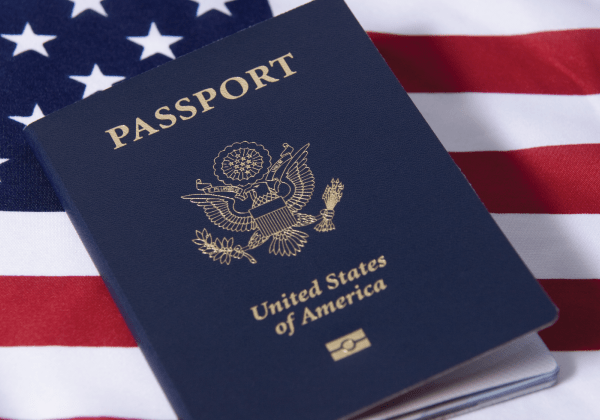Last Updated: March 3, 2017

There comes a time when every citizen needs to look up to their government and question what is going on in the world.
Recently, many American citizens have been the victims of retaliation against the American Government policies towards immigration and visa applications.
Visa-free travel for American Citizens
Myself, a loud and proud Canadian, has been verbally accosted as being a “Stupid American – go back where you came from” simply because I look and sound like my neighbours to the south.
Once a country that could travel the world with very little in the way of restrictions is seeing more and more of its people facing political backlash for the choices of the government. Visa-free travel may be affected.
European Travel Restrictions
In a new development of the recent political climate in the USA, European parliament has voted to end the visa-free travel access for American citizens within the EU.
According to international law, once a person has entered the EU, they have entered the Schengen zone, providing visa-free travel within. Once in the zone, anyone can move across the 26 countries without being stopped, due to it’s border-free access.
This means that if you are granted entry into one country, you are essentially granted entry into all countries. The European Commission is in charge of which countries may enter, which may not, and which require special documents like travellers Visa’s; individual countries do not have this power.
On the other hand, countries around the world must select each and every EU member for visa-free travel. According to the Reciprocity agreement, as you would imagine, it requires that all countries reciprocate this privilege.
It was discovered that the American government was not “playing ball” three years ago. They have been warned to change their policies to allow for visa-free travel. The two-year deadline has since passed and legislation has begun to restrict American travel within the Union.
The European Parliament has voted to end the visa-free travel for American citizens within the EU and is currently waiting for the European Commission to implement the changes. It is unclear how current visitors will be affected by the change, but sources say the Commission will allow for a 2 month grace period.
The member countries requiring US-Visas are Bulgaria, Croatia, Cyprus, Poland and Romania. The US State Department has already commented that these 5 countries do not meet the minimum standard for visa-free travel entrance through their borders, though the EU Commission would disagree.
Canada, Australia, Brunei and Japan were also identified as having visa-restrictions on the same 5 EU member countries, but are either lifting or have lifted their visa restrictions. Canada has promised to have its restrictions lifted before Dec 1, 2017.
Opposition to visa-free travel restrictions
There are many that are opposed to this turn of events. Terrorism in Europe has already damaged the tourism industry and such a move could further exacerbate the situation. By the simple act of adding a few weeks’ delay and a fee of $15 to obtain the visa has led the opposition to believe many Americans will forgo their European plans altogether.
Others still believe that the simple act of requiring a Visa, regardless of time and money, will keep them away from visiting; it’s the principle of the matter, they say.
Worldly Retaliation over Travel Ban
Iraq and Iran have also imposed restrictions on American visitors, banning Americans in retaliation for the US ban imposed by President Trump. This went so far as Iran banning the National Wrestling Team on Feb 3, then allowing them again on Feb 5 once Trump’s ban was overruled by a Federal Court Judge.
Following the reports that British citizens of Middle Eastern descent (with or without dual citizenship) are being denied access to America, or taken off of planes for simply reading text messages from their mother, in English, has made many citizens afraid for their security. Trump has promised that British and Canadian Citizens, even those holding dual-citizenship with any of the 7 named countries, will be allowed into the US as per “business as usual”, but many are claiming his promises are not being kept during security screenings.
Canadian schools are starting to cancel any and all trips to the USA in fear that their students will be discriminated against at the border.
What is the Travel Ban?
To put it simply, President Trump’s executive order has now placed a 90-day freeze on all immigration paperwork and visa applications originating from 7 countries. As citizens of those countries, regardless of current address, one is bound by the laws of the destination country and travel has become increasingly difficult for all those affected.
What does this mean for citizens of the 7-named countries? Basically, anyone with a passport from any of these 7 countries, they are not allowed to step foot on American soil, even during a flight transfer. Some countries are even required to hold a transfer-visa just to switch planes in their airports, but this is not applicable to these countries. In order to cross Oceans or travel the world, alternative transfer points must be made or ultra long-haul direct flights must be purchased.
What to expect at the American Border
According to CNN, Customs Officials have the final say on a person’s “admissibility” into the United States. This means that even if you are allowed to enter the USA with a Visa, Green Card or Visa-free travel, some restrictions may apply. Upon exiting the aircraft restrictions my become apparent when dealing with Customs Officers.
A person’s 4th Amendment rights, usually applicable to citizens, visitors and illegal immigrants, once on American soil, do not apply at the border. This means visitors are not protected from searches and seizures without probable cause. At the border, one does not have the right to call a lawyer once detained if they are not an American citizen, with or without a Visa. A lawyer is only permitted if being questioned for anything other than immigration status or being charged with a crime.
Anything and everything can be searched, even if you are an American citizen or Green Card holder. Cell phones can be confiscated and demanded to be opened for any number of reasons, including but not limited to incomplete travel documents, your name matches a person of interest, or are “randomly selected” in a search. You can also be asked to provide login information for social media profiles and emails, though lawyers and news sources alike are unclear if you are required to give up this information.
Just because you aren’t legally required to do so, it may be the most practical choice. Failing to comply with border officials could result in being denied entry and you are forced to pay for an immediate ticket home. Green Card holders would be placed in detention pending a hearing.
American citizens are required to be allowed in, but when is the truer question; Border Agents are allowed to detain citizens for hours before being released. Agents also have the right to confiscate your devices for “future investigations”
Bottom Line | How to avoid problems
My first bit of advice would be research. Know exactly how your country stands with your destination. Have all of the required documents on your person and keep a digital copy in a Cloud server for easy access.
Secondly, be mindful of what you post on social media before and during your stay. Nothing screams “denied entry” like anti-government propaganda on your feed. Clean your feed, delete posts, delete images, whatever needs to be done to “pass” screening.
And lastly, they can’t search what you don’t bring along. Keep non-essential items at home and clear the hard drive of anything you do bring with you. I would go as far as to say leave all electronics behind, with exception to cell phones.
If you have an issue with any of this, I urge you to speak to your local representative and make your opinions known. You voted for them, you have the right to express your disagreement.
And as always, stay informed and stay safe.
Canadian? Did you know you could travel to 172 countries without a VISA? Check out this article about VISA free travel applications for Canadian Citizens.
